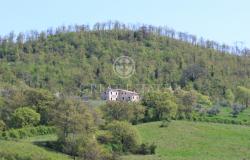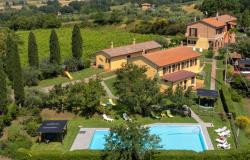Years ago, media guru Negroponte defined the infrastructures on which digital bits and data run as ''information highways''.
Now, Tuscany will be the first region in Italy to realize what has long been a reality in the United States: broadband and high speed Internet in the region, including outlying areas, mountains and rural areas.
By 2010, all areas in Tuscany not currently covered by broadband - 415,000 people and 30,000 businesses - will be connected to the network.
The total allocation from the regional government is approximately 20 million euro, in addition to another six to seven million from the telecommunications firms that won the competition.
Among the companies that presented their offers, the following were the winners: Telecom for Grosseto, Siena and Prato, Nettare for Pisa and Livorno; Eutelia for Arezzo, Lucca, Massa Carrara and Pistoia; and a grouping of Publicom and Agescom for the area surrounding Empoli-Val d'Elsa.
The diffusion of broadband will offer those services essential for economic growth and citizen's social well-being such as e-government, distance learning, e-business, online health services and electronic commerce.
Region vice president Federico Gelli and CNIT representative Enrico Del Re explained: ''We are talking about breaking down the digital divide, giving all Tuscan citizens equality in the access of information and services that will be available under the new infrastructure''.
Del Re commented: ''The informational infrastructures are the highways of today's economy. Modern developments and efficient technological infrastructures for communications are, in our time, one of the decisive elements for the socio-economic growth of a region.
''The diffusion of broadband with all of its technological components is one of the main projects CNIT is working on. We have been collaborating for years with the regional government to put its research and telecommunications expertise to work''.
This development programme represents an important collaboration between telecommunications operators and public administration. The region, in fact, has intervened in a market that, given its natural dynamics, could not guarantee coverage in areas at risk for investments.
Tuscany was the first region in Italy to make this known to the European Commission, thereby getting the green light for its goals and procedures.
Gelli commented that, ''Europe recognized that our intervention will not change the rules of competition, rather that it represents an important step in the fight against the digital divide''.










